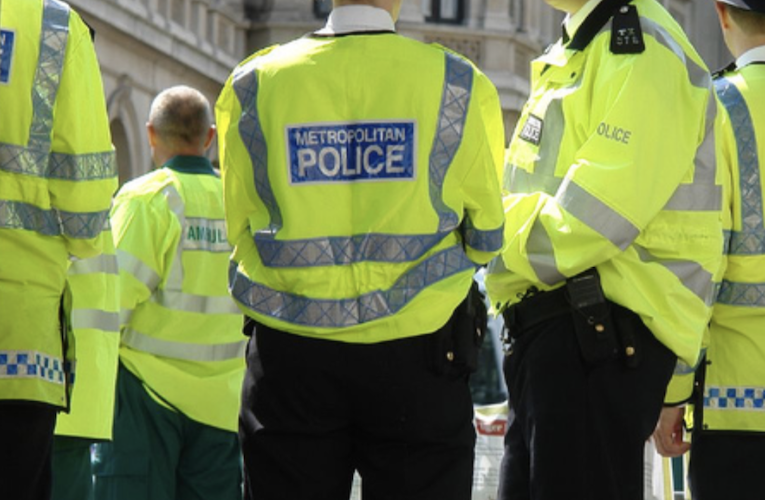The more its incompetence becomes apparent, the more convinced Boris Johnson’s government is that it knows best. From its earliest months in office an administration elected on a promise to devolve power to “people and places across the UK” has been hellbent on seizing control of the nation’s capital from its devolved authorities and imposing its will on them.
It began with Robert “Westferry Bob” Jenrick ordering Sadiq Khan to dump crucial sections of his proposed new London Plan because he thought he had a better one for the capital. As Ben Rogers and Tony Travers would put it: “Jenrick had, in effect, taken control of the London Plan”.
Then came Covid and its devastating impacts on the finances of Transport for London as passengers stayed at home. Transport secretary Grant Shapps and Johnson’s erstwhile media supporter Andrew Gilligan eagerly seized the opportunity to force on TfL their own ideas about spending and priorities.
And now, the long-anticipated assault on the third of the policy areas in which the 1999 Greater London Authority Act conferred strong powers on the capital’s directly-elected political leader, and were enjoyed by Johnson himself during his eight-years at City Hall – powers that were limited, opaque but nonetheless significant over the budgets and strategic priorities of the Metropolitan Police Service and its commissioner.
This latest hostile incursion on mayoral autonomy has been precipitated by the seemingly endless stream of ugly evidence that the Met has grown as nasty and inept as the arrogant, rogue Downing Street regime. Blame-gaming has busted out all over, with Khan pointing out that he is the one who has instigated reviews of Met culture and outed Cressida Dick while Johnson and Home Secretary Priti Patel stuck by her, and policing minister Kit Malthouse, who was Johnson’s policing deputy at City Hall, accusing Khan of being “asleep at the wheel”.
Let’s step back in time. When Malthouse and Johnson forced out Ian Blair as “Britain’s top cop” in 2008, in much the same way as Khan got rid of Dick, Malthouse observed with satisfaction that he and Johnson “have our hands on the tiller” of the Met. Eyebrows were raised, but the principle of a London Mayor being the primary elected steerer of London policing was sound. Now Malthouse advocates the Met tiller being in the hands of Whitehall. As with planning, housing and transport, this is a government that supports devolution only when devolved authorities do what central government wants.
Officially, if nebulously, the choice of a new Met chief is the Home Secretary’s to make (for approval by the Queen) but he or she must “have regard to” the views of the Mayor. That requirement is more exacting than those words suggest, precisely because both Johnson and Khan have shown that although Mayors have limited say in the appoint of Met chiefs they can effectively jettison them all by themselves.
Even Patel might have spotted that – after all, she has asked Tom Winsor, the recently-retired chief inspector of constabulary, to look at whether the Mayor’s powers should be reduced. In the meantime she appears to be doing what she can to ensure that Dick’s successor is as close to being what she wants as possible.
The Standard reported last month that the Home Office – not the Mayor – had eliminated all outsider hopefuls in favour of two men steeped in the Met, thereby ensuring that the Robert Mark precedent cannot be followed (Mark was brought in from Leicester as an assistant commissioner in 1967 and after rising to the top in 1972 proved to be an effective new broom at cleaning up rampant corruption).
Khan has since been complimentary about both men – serving assistant Met commissioner Nick Ephgrave and, the favourite, former counter terror chief Mark Rowley – but yesterday he revealed his “understanding” that he and Patel will be interviewing the final candidates separately which, he remarked, “doesn’t appear to me the sort of teamwork Londoners expect from their Home Secretary and their Mayor”. Khan says he wants a “reforming” commissioner. Maybe Patel does too, though her definition of “reforming” seems unlikely to be the same.
This fractious foreground fighting has intensified with a damning report from Her Majesty’s Inspectorate, which found basic failings on a shocking scale, and against the background of a larger and long-running question asked on Twitter today by former BBC home affairs correspondent and policing specialist Danny Shaw: “Is it time to separate the national responsibilities of Met Police – counter terrorism, royal protection etc – from its responsibilities policing London?”
I think the answer may be “yes” and that London’s Mayor’s hand should be the one guiding a turnaround of the toxic Met tanker. I doubt Johnson, Malthouse or Patel agree.
On London strives to provide more of the kind of journalism the capital city needs. Become a supporter for £5 a month or £50 a year and receive an action-packed weekly newsletter and free entry to online events. Details here.

